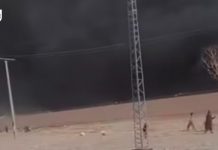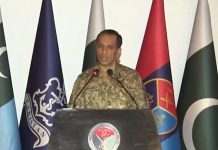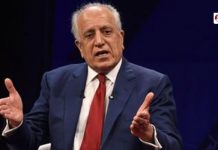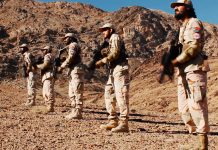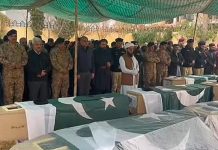Author: Israr Baloch
In the chilling depths of Balochistan’s winter, an elderly figure, Maula Bukhsh, donned in a Balochi scarf, stands resilient, embodying the anguish of families impacted by the latest surge in violence. His son, Balaach, fallen victim to cold-blooded murder, becomes a poignant symbol amid protests against extrajudicial acts, notably in Turbat.
Balaach’s alleged killing in custody sparks a month-long journey from Turbat to Islamabad, uniting grieving families and human rights advocates. However, their arrival is met with an unjust crackdown by Islamabad police, resulting in the detention of numerous participants and injuries inflicted during clashes.
The recurring question persists: why does Balochistan endure such inhumane acts, enforced disappearances, and extrajudicial killings? The constitutional and legal efficacy of the judiciary is under scrutiny. The truth emerges — Balochistan is ensnared in a cycle of mass violence. Addressing these issues requires fundamental steps.
A transparent and fair trial, a cornerstone of justice, is essential to rectify pervasive extrajudicial killings. Arbitrary detention and coercion must be eradicated. Upholding the right to protest and fostering a culture of dialogue, outlined in the constitution, must transition from theory to practice for meaningful change.
Beyond human rights, resolving the plight of Baloch missing persons is imperative. The alarming number exceeds ten thousand, eroding public trust. Disbanding state-backed death squads, active since the 1970s, is crucial. Media coverage must bridge the gap between the ground reality in Balochistan and mainstream narratives, revealing the extent of control over electronic media.
Engaging in open, fair, and transparent dialogue is paramount. Authorities must recognize the grievances of the rally members instead of resorting to harassment. In the quest for justice and peace, these key factors can pave the way for a more stable and harmonious Balochistan.
Disclaimer: The views and opinions expressed in this article are those of the author and do not necessarily reflect the official policy or position of The Balochistan Post or any of its editors.











